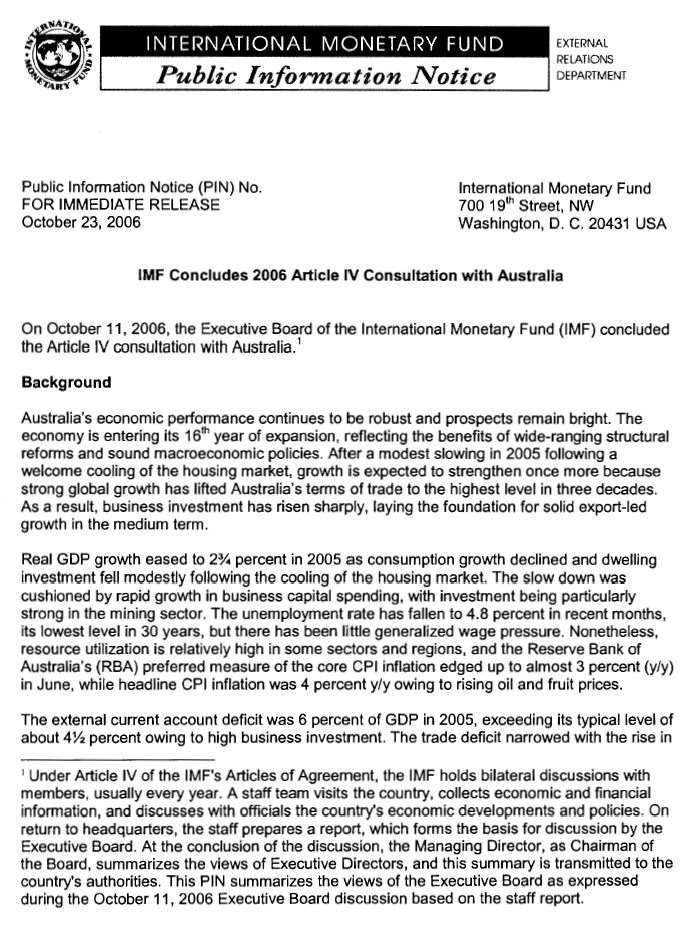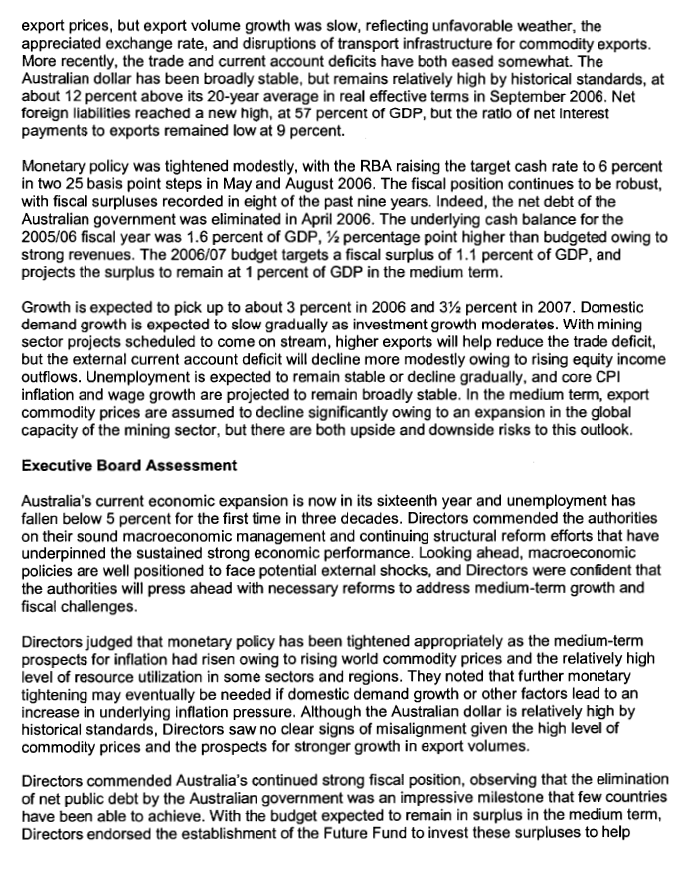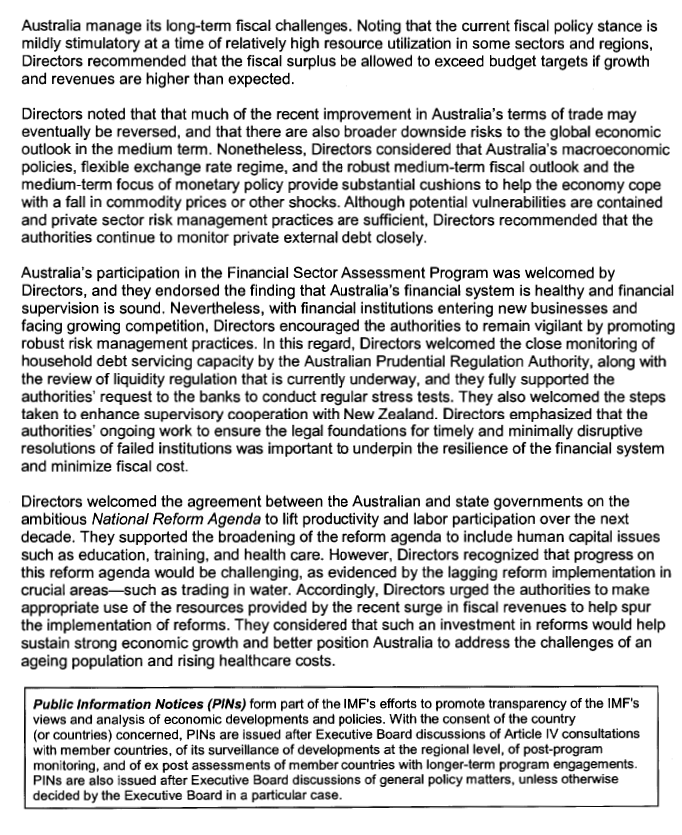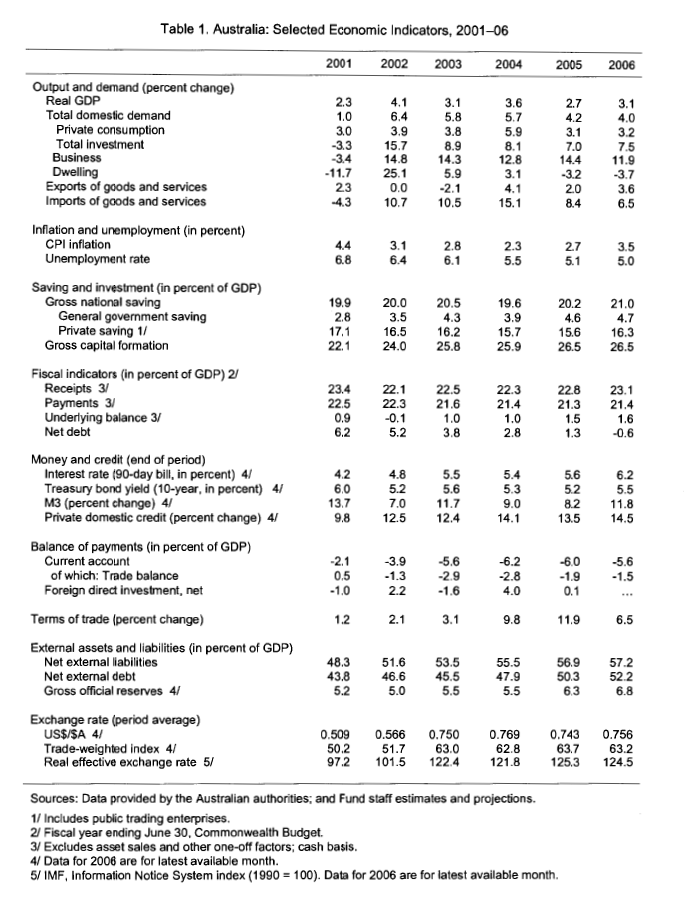The IMF has commended Australia’s sound macroeconomic management and continuing structural reform, which it says has underpinned Australia’s sustained strong economic performance.
Australia is in its 16th year of economic expansion and unemployment has fallen to its lowest level in 3 decades. The IMF judges that Australia’s economic prospects are bright, with GDP growth expected to be around 3 per cent in 2006 and 3½ per cent in 2007. Increased exports are expected to narrow the trade deficit, as new resources projects increase production. Unemployment, core CPI and wage growth are expected to remain broadly stable.
The IMF commended the elimination of net public debt in Australia, and observed that it was an impressive milestone that few countries have been able to achieve.
The IMF identified uncertainty in the outlook for commodity prices as a key risk, with risks associated with the housing sector having further diminished from previous years. In the event of any shock, the IMF has noted that macroeconomic policies are well positioned, given Australia’s ‘enviable’ fiscal position, flexible exchange rate and medium-term focus to monetary policy.
IMF staff have praised Australia’s record in implementing wide-ranging structural reforms despite the difficulties inherent in our federal structure. They have ‘encouraged sustained and determined leadership from the Commonwealth government’ in steadfastly implementing further structural reforms.
The IMF noted the ‘concerted effort’ being made by the Government to expand employment, with labour demand, especially in small businesses, expected to increase under the WorkChoices reforms, complemented by an increase in labour supply following reforms to the Disability Support Pension and Parenting Payments under the Welfare the Work package.
The IMF Public Information Notice is attached, with the complete Article IV Staff Report and Selected Issues Papers available at the IMF’s website, http://www.imf.org, and on the Treasury website, http://www.treasury.gov.au.




